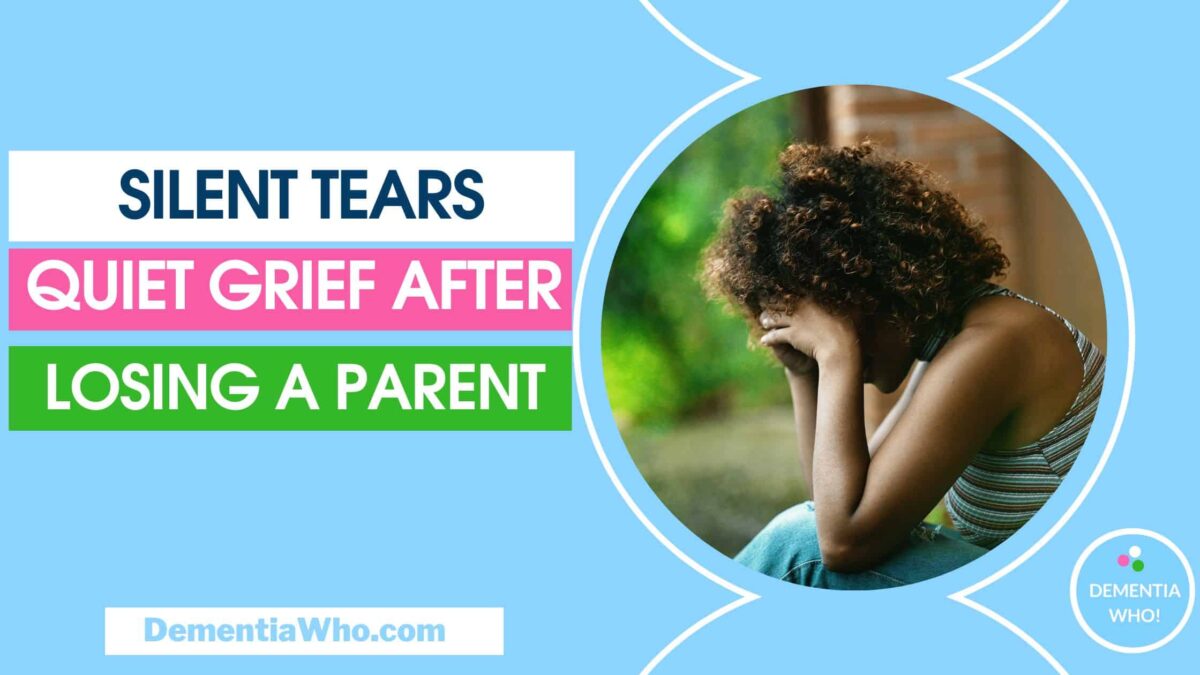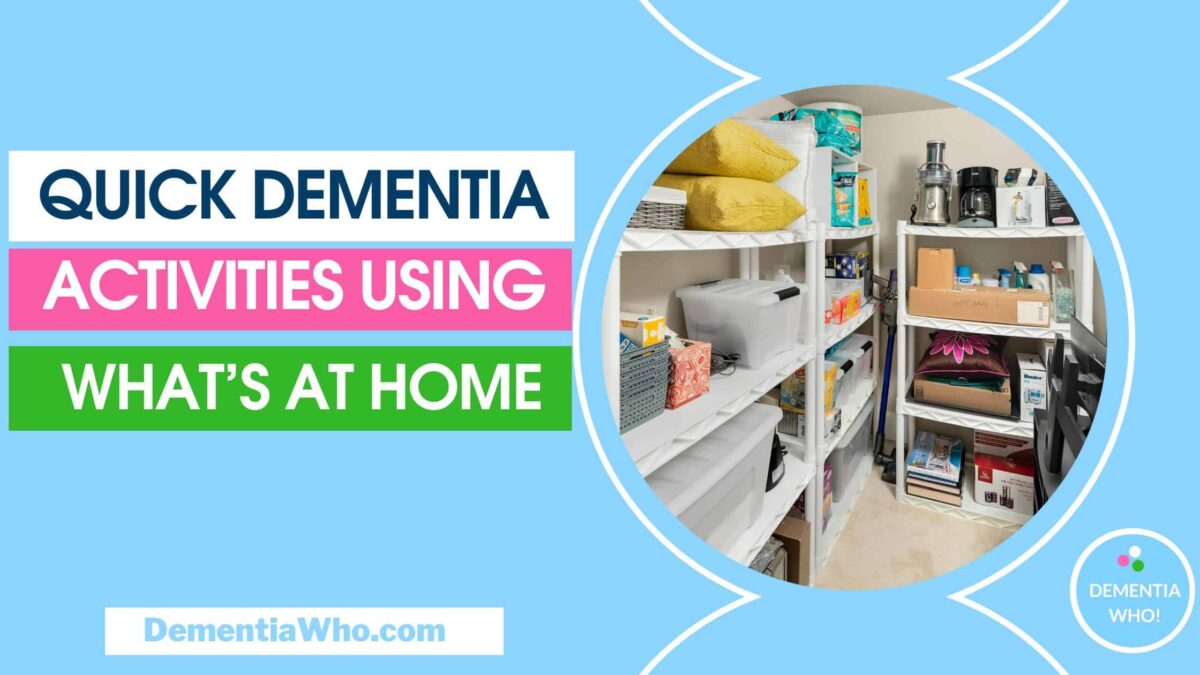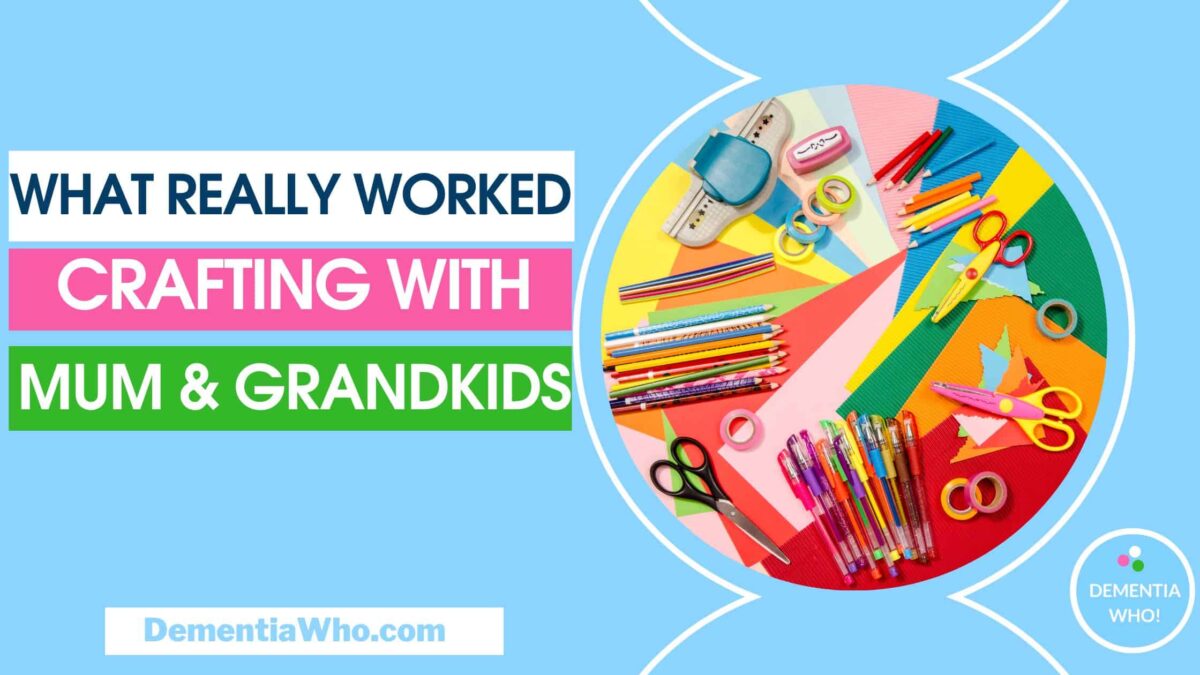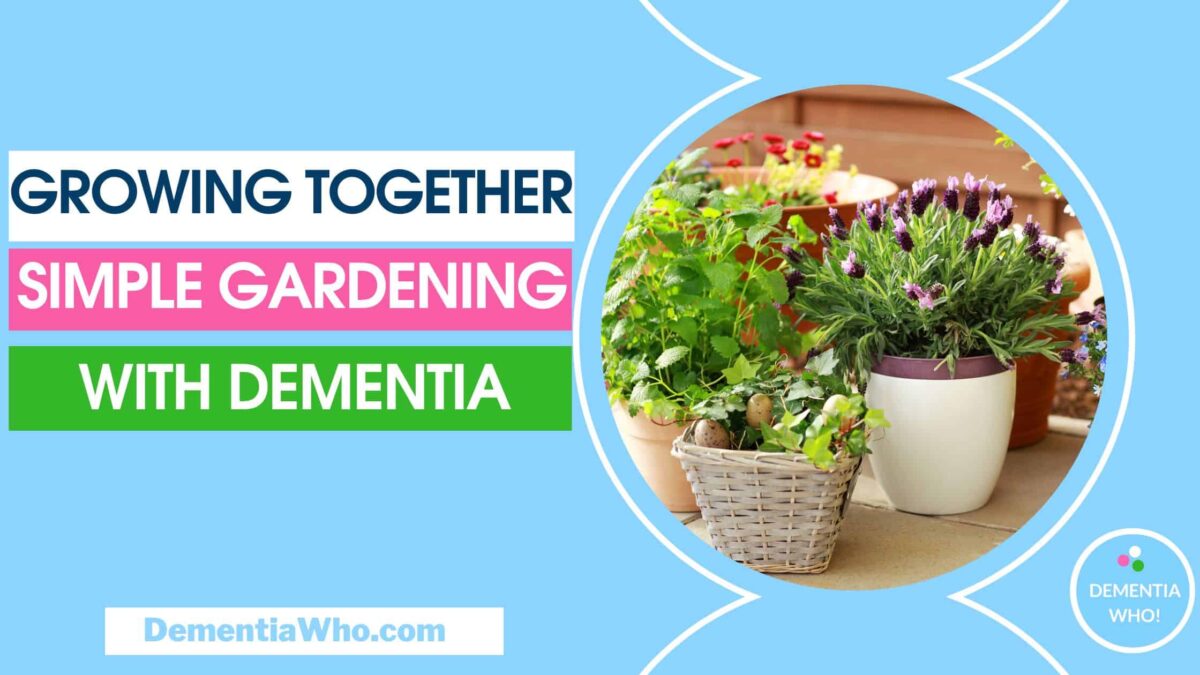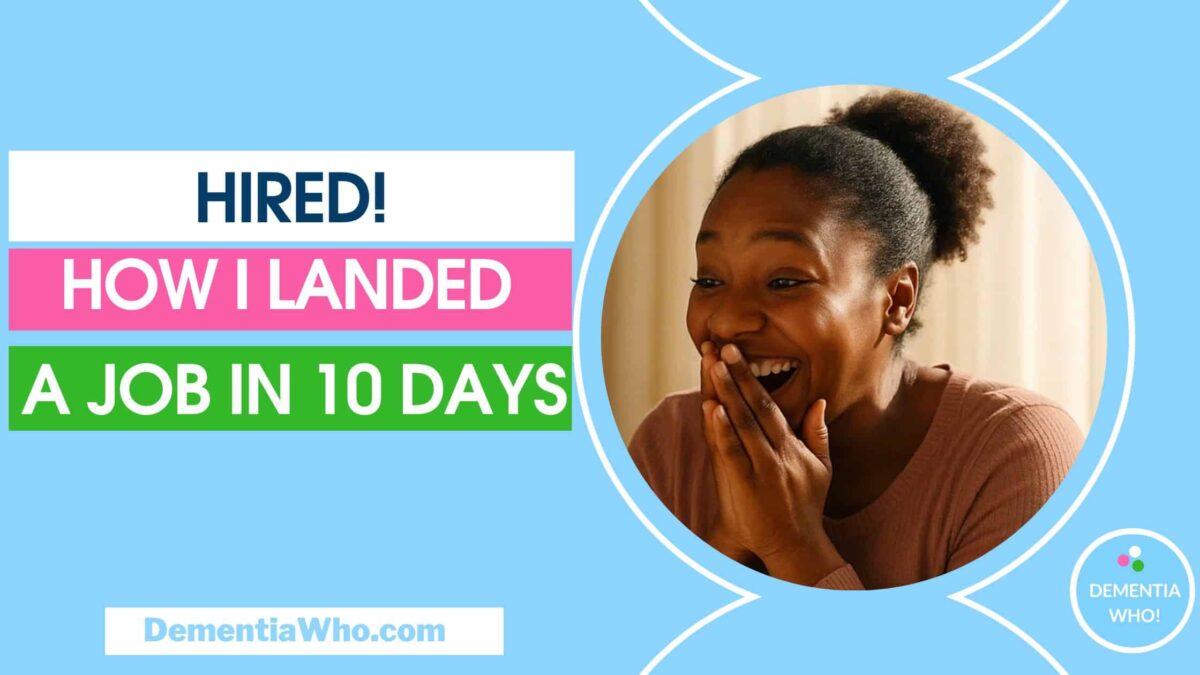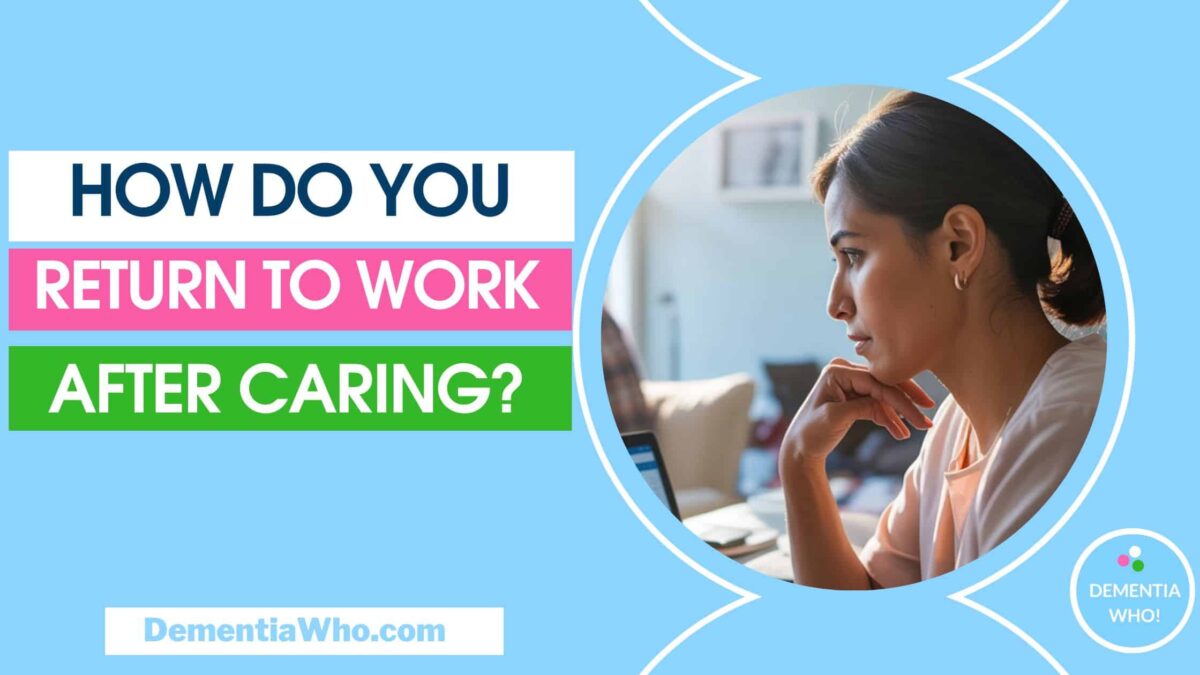One of the hardest things you’ll face is when your loved one with dementia forgets who you are or doesn’t recognise you.
I don’t care what anyone says here. It hurts, not once, but again and again until you learn to accept it. On the other side, is your loved one hopefully seeing you in a positive, non-threatening light and accepting this version of “you”. That’s the situation I faced. You can read more here.
What if your loved one believes you’re a threat to them? I’ve experienced both, one of the worst times was when mum thought I was trying to kill her.
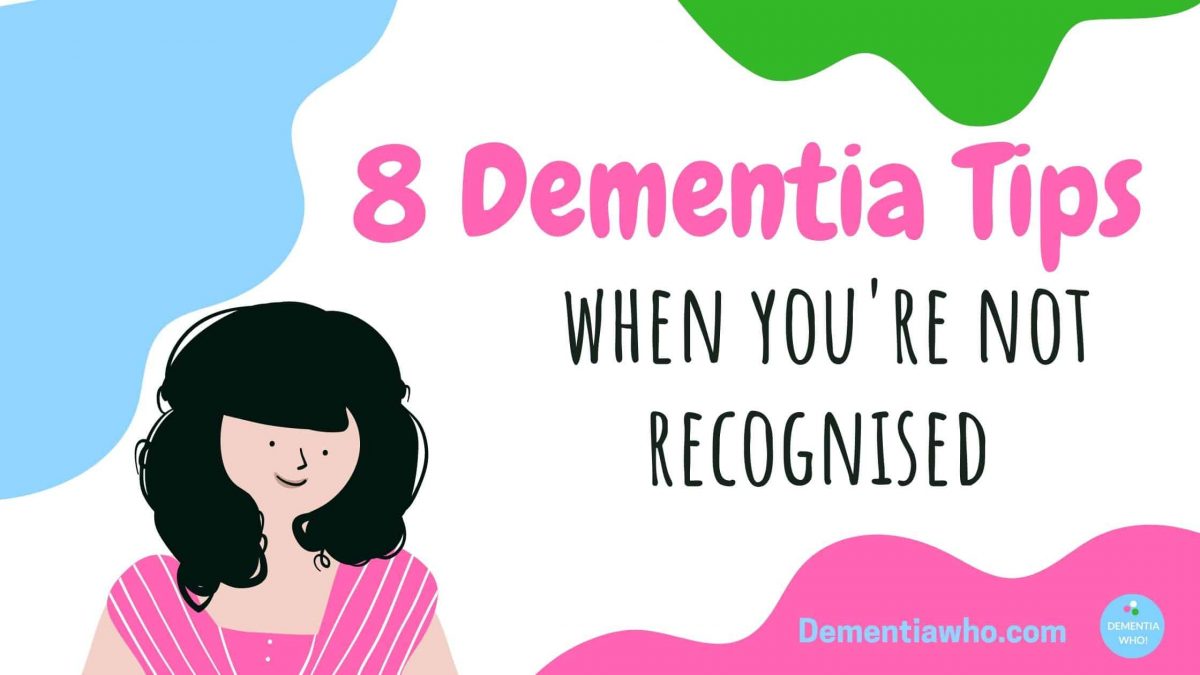
So I’ve updated some tips that I used to help mum and me, that I hope will help you in your journey.
Let’s get to it: 8 Dementia Tips when a loved one doesn’t recognise you!
#1 – It’s not personal!
- Don’t take it personally – it’s the disease affecting parts of the brain that impact memory.
- Remember that going through dementia means chemical and physical changes in the brain that can effect memory, their vision, physical and psychological well being.
- Everyday tasks take up much more mental energy so fatigue also plays a part.
- It’s not you, it’s the dementia!
#2 – Reassurance
- Simply smiling, reassuring through touch (if acceptable) can help calm a loved one
- Mum recognises my voice, so I call her on the phone sometimes and talk her down through that
#3 – Introduce yourself
- If someone doesn’t recognise you then simply introducing yourself and explaining why you’re there can help a loved one make sense of your presence
- Rather than saying I’m your daughter, if there in a heighten state, use your given name, and show them you’re there for a particular purpose.
- If it gets too much for both of you, then leave the room for a few minutes. Sometimes that helps break the circuit. Take a few deep breaths, then come back in and introduce yourself and your relationship
#4 – Photos
- Get your old photo albums out, share old photos of your family at different stages of your lives, they may recognise a younger version of you.
#5 – Body Language
- If you’re getting upset or reacting to your loved one then your loved one will most likely pick up on this. If you’re talking loudly, or your tone of voice has changed or you’re all tense, your loved will sense this and react to this.
- Relax, breathe, leave the room if you need to, come back positive.
#6 – Reminisce
- If your loved one is not familiar with you, bring out what’s familiar to them.
- Reminisce about the paintings on the wall, the china you’re using, familiar objects around the room, talk about old times, put on their favourite music, wear clothes that may be familiar, wear smells they know, ask them to talk about the person they’re mistaking you for.
- All of these things will hopefully reduce any anxiety being experienced and allow you both to reconnect to each other through your shared love.
#7 – Medical Issues
- If your loved one, along with not recognising you, is acting out of character, being overly weepy, aggressive, anxious over who you are, then it may be medically related.
- Some people with dementia may be suffering from an infection causing this type of behaviour, like a UTI. So it’s advisable to have them checked out medically. They’ll help investigate what’s causing the change, it could be dementia alone, and if so, they can refer you to the mental health /dementia team for further help.
#8 – Don’t contradict
- If their reality is different from yours, don’t contradict; accept and remember that your aim is not to increase anxiety. Contradiction leads to distrust. As long as there aren’t any safety issues involved, then go with the flow. If they don’t remember you, it’s just not worth worrying about.
The inability to recognise you has a medical term – prosopagnosia, also known as facial blindness, so understand that this is to do with changes in the brain. When you accept that you’ll start to be more at ease around your loved ones, and they, in turn, will be more at ease with you.
If you like this blog, why not consider subscribing?
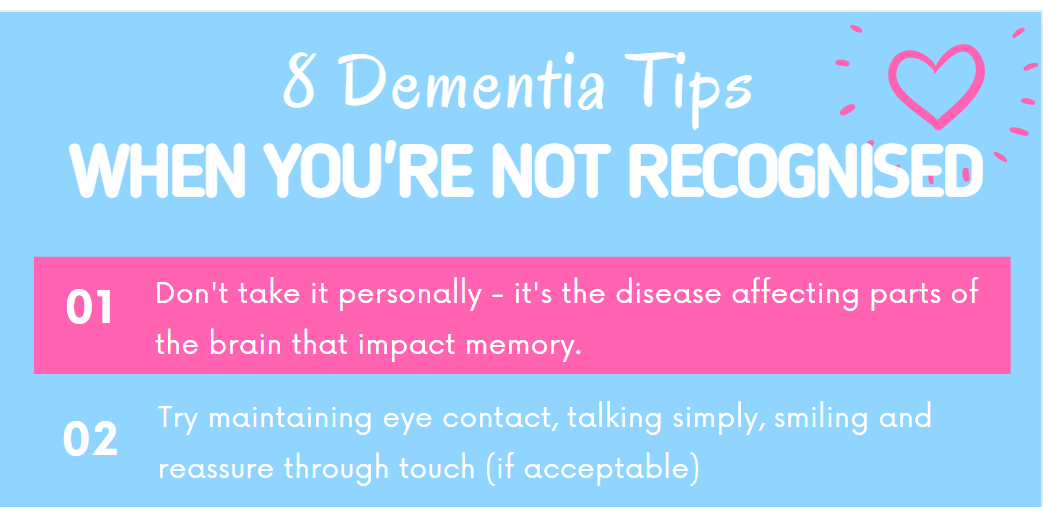
To say thanks for signing up, download a copy of all the tips in this handy pdf!
Tommy Dunne lives with Alzheimer’s and is one of the beacons of light changing the perceived stigmas associated with living with dementia. He advises that you focus on talking to the person, not the dementia, and get down to their level when talking to them. So if you come in and they are sitting on the sofa, get down to their level, make eye contact and introduce yourself.
Enjoy the time you have together and value it. Your relationship may stay the same or change and blossom into something wonderful and new.
I hope that is the case for you as it has been for me, we have a new relationship better than before for me, so I cherish that even if she doesn’t know who I am.


